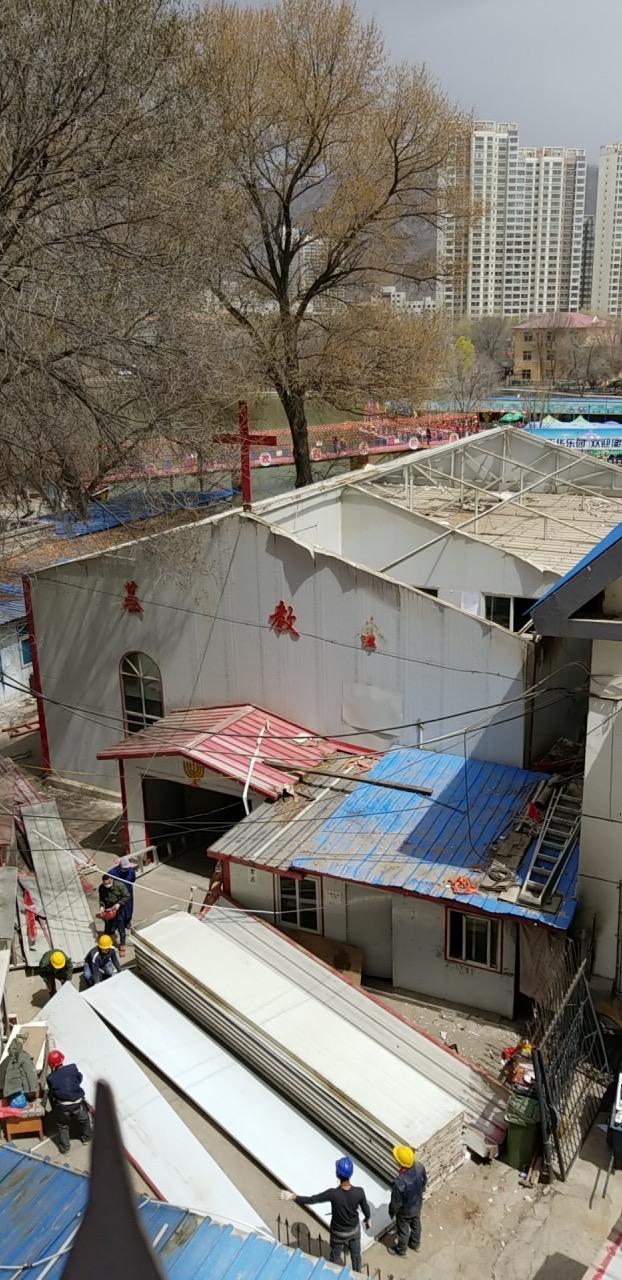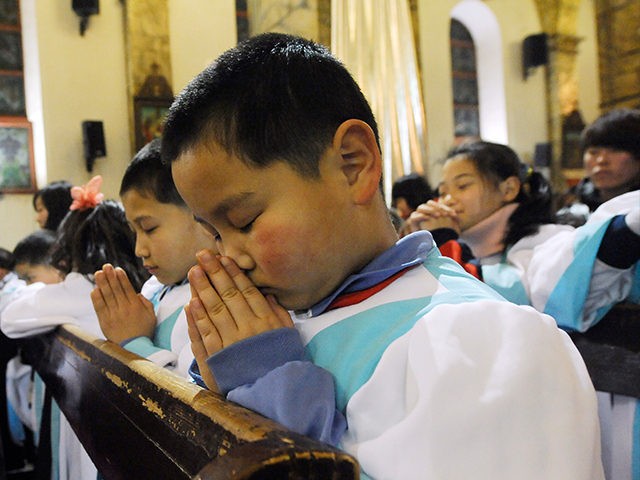The human rights website Bitter Winter highlighted on Thursday the growing trend of Chinese Communist persecution against members of the Three-Self Patriotic Church, the legal Protestant church in China. Officials reportedly demolished one of these churches on Easter.
China bans all religions except for five: Taoism, Buddhism, Catholicism, “Christianity” (the Three-Self Church), and Islam. The Communist Party heavily regulates the operations of all five religions, and imprisons, tortures, and disappears members who defy orders such as the indoctrination of believers into worshipping the Party. Beijing also persecutes those who choose to practice their faith outside of the five official religions, such as “house Christians” (those who pray at home), Tibetan Buddhists, and Uyghur Muslims who do not go to state-sanctioned mosques.
The heightened attacks on Three-Self churches suggest that Beijing is growing increasingly concerned not just with Christians practicing “illicitly” – outside of the confines of the Party – but those obeying Beijing by attending legal services.
The demolitions and other violations of the rights of believers are occurring as China faces a nationwide epidemic that has since become a pandemic, threatening nearly every nation, of the newly discovered Chinese coronavirus. While the Communist Party insisted that the outbreak – particularly in Wuhan, where it originated, is over – lockdowns in cities like northern Harbin indicate that the Party has failed to contain the threat.
Bitter Winter highlighted on Thursday the recent demolition of a legal church in Henan province, reportedly occurring in the early morning hours of March 10.
“At 4 in the morning of March 10, over 200 government personnel and police officers came to a Three-Self church in Xiazhuang village in Dawu township, administered by the prefecture-level city of Shangqiu in Henan Province. Led by officials from the Religious Affairs Bureau, they brought along two excavators to demolish the church,” Bitter Winter reported. “According to an eyewitness, the church, built with over 300,000 RMB (about $ 40,000), donated by the congregation, was turned into ruins, and all church belongings, worth tens of thousands of RMB, were buried in the rubble.”
The witness stated that police threatened to “kill the person in charge if he challenged the Communist Party again.”
The outlet also cited China Aid, an organization that helps persecuted Christians in the country, reporting a similar demolition of a Three-Self church on Easter Sunday. The incident reportedly occurred in the capital of Qinghai province, Xining, on the morning of April 12.
“The Urban Construction Bureau of Chengxi District, Xining City forcibly demolished the meeting place [church] on the grounds that the meeting place was an illegal building and there were hidden safety risks,” China Aid revealed. “The whole process lasted about two hours.”
The church served about 300 Christians and received Communist Party approval to operate in 2003, China Aid noted. The outlet also published photos of the hollowed-out church.

Churches that remain standing have also faced government harassment. In southern Fujian province, Christians reported having their Sunday service interrupted by police on April 19 because “folk religion” had allegedly been banned in the wake of the Chinese coronavirus pandemic. The church was a “house church,” attracting scrutiny in any case, but believers say they cannot verify the existence of any alleged ordinance on “folk religion.”
“China is now holding itself up as a model for fighting the coronavirus. But fighting the pandemic hasn’t stopped communist officials from persecuting Christians,” Todd Nettleton, a spokesman for the nonprofit group Voice of the Martyrs (VOM), told Fox News in March, warning that the lockdowns could precipitate a wave of attacks.
Reports at the time indicated that Buddhists and Taoists have also seen similar persecution. Muslims this week begin observing their holy month of Ramadan, a time when the Party bans them from fundamental practices such as fasting in western Xinjiang province, where most Uyghur Muslims reside.
“If the outbreak continues for a year or two, large churches may gradually disappear,” a minister told Asia News in a report published Friday, fearing not just government persecution but the reshaping of society in the aftermath of the pandemic.
“I think the future will emphasize a community of faith rather than a visible church,” said another.
Prior to the pandemic, in 2019, Bitter Winter estimated that the Communist Party had shut down over 300 “Three-Self” and house churches throughout the year.

COMMENTS
Please let us know if you're having issues with commenting.